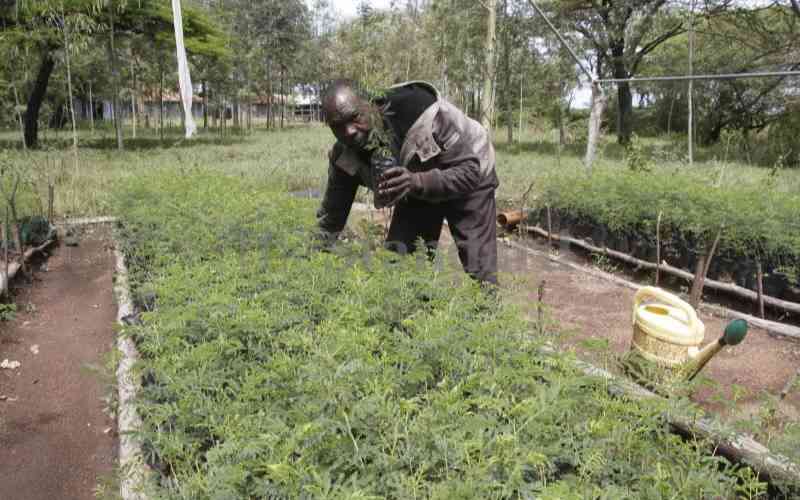×
The Standard e-Paper
Home To Bold Columnists

Nelson Omondi walks slowly as he inspects a tree nursery with seedlings that are ready to be transplanted and are waiting for a buyer to give them a new home, as the rainy season begins to peak.
He carefully removes a few weeds that are growing in the nursery and steps back slowly to admire the results of his hard work. The tree nursery is located next to the Mirema forest in Macalder, Nyatike sub-county.